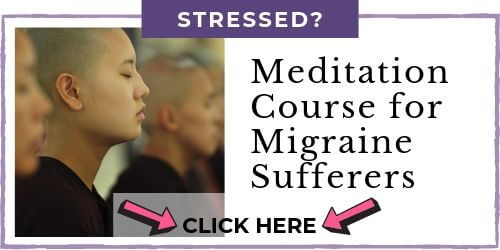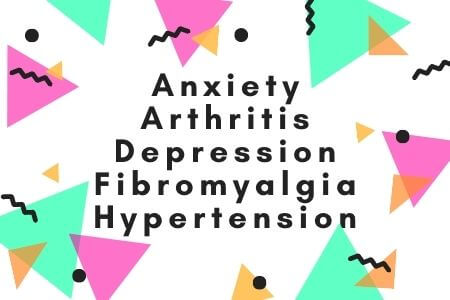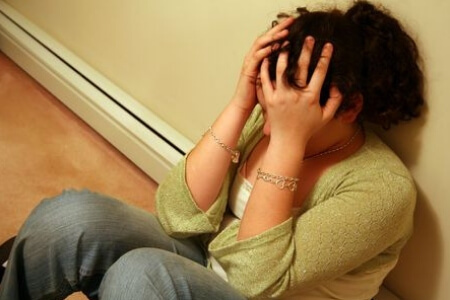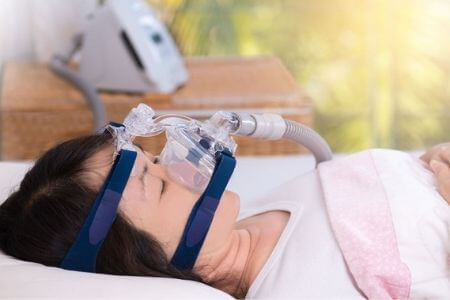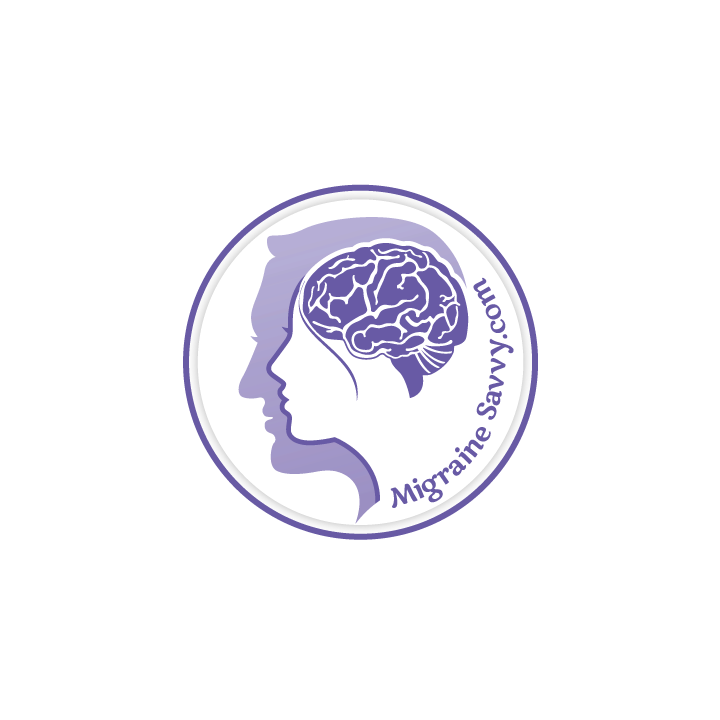- Home
- Associated Conditions
- Migraine and Sleep Problems
COMPLETE MAGNESIUM SUPPORT
My Top Choice - Magnesium Breakthrough - The ONLY supplement with all 7 essential magnesium types in one formula. Most only have 1-2 types, leaving you deficient.
Do You Get A Migraine from Lack of Sleep?
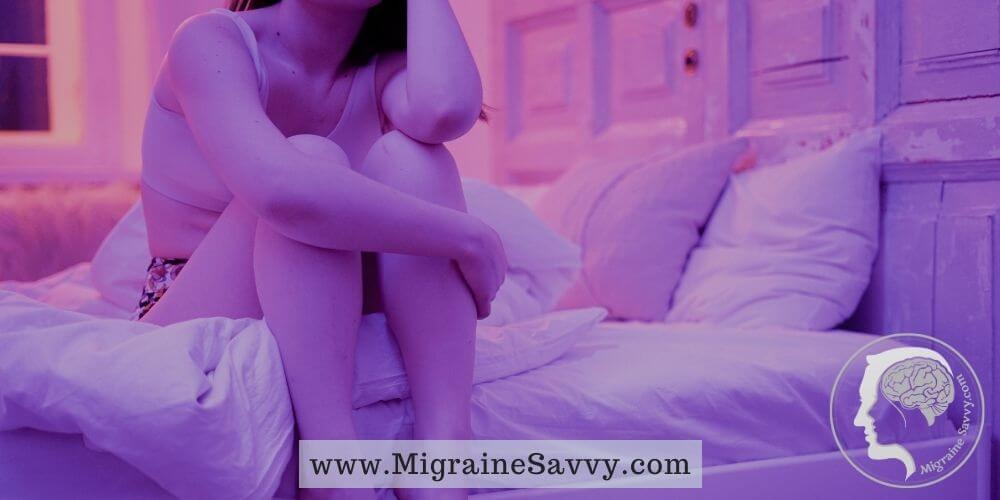 Do You Get A Migraine From Lack Of Sleep?
Do You Get A Migraine From Lack Of Sleep?
You've probably already read about the basics for getting a good night's sleep.
Things like using your bedroom for sleep and sex only, going to bed and waking up at the same time every day even on weekends, and limiting daytime naps to no more than 20 minutes. The National Sleep Foundation recommends 7 to 9 hours of sleep for adults 18 to 64 years old and 7 to 8 hours of sleep for those older than 65.
Getting to bed at a regular time between 9-11 pm will help keep your circadian rhythm in balance. But we both know how much a migraine can disrupt our regular sleep routine.
Let's have a look at what can help prevent you from getting a migraine from lack of sleep. Good, refreshing sleep.

 Migraine from lack of sleep? It is the REM sleep (Rapid Eye Movement) stage that provokes migraines.
Migraine from lack of sleep? It is the REM sleep (Rapid Eye Movement) stage that provokes migraines.Migraine From Lack Of Sleep - What You'll Learn In This Article:
Can you get a migraine from lack of sleep? A long... disabling attack? You sure can.
It's The Rapid Eye Movement (REM) Sleep Cycle That Provokes Migraines
Doctor Vincent Fortanasce says it's the REM sleep (Rapid Eye Movement) stage that provokes migraines. [1]
Dr. Fortanasce is a Los Angeles-based neurologist, psychiatrist, and author of the Anti-Alzheimer's Prescription. He says that REM sleep can provoke your most powerful migraine about five to six hours after sleep begins. [1]
He says that “most of us go through about six sleep cycles with about four stages of sleep, plus rapid eye movement (REM) sleep. The deepest stages of sleep (stages 3 and 4) are necessary for the production of sufficient serotonin and dopamine, both neurotransmitters.
These neurotransmitters are the "feel good" chemical messengers in the brain, and both depend on adequate sleep; a decrease in serotonin and dopamine is associated with poor sleep or sleep problems.
One reason for waking with migraines is that REM sleep is most powerful just before awakening. Sleep problems can then trigger migraines by causing instability of serotonin and a lowering of dopamine levels.
Antidepressants, specifically the selective serotonin reuptake inhibitors (SSRIs), may help stabilize serotonin membranes and block migraines. These medications are sometimes used as migraine treatment.” [1]
My #1 Choice in Magnesium Supplements
Dealing With Migraines And Sleep Disorders
Research has shown that sleep problems such as insomnia, may actually be a trigger for migraines. When a migraine begins, the hyperactive nerve cells will send impulses to the blood vessels telling them to constrict. Along with this constriction comes a release of chemicals in the brain and an inflammatory substance, which actually causes the pain.
In a study on migraine sufferers and their sleep habits, which was published in Headache, showed that there is evidence that good sleep reduces the intensity and the frequency of migraine headaches. With this study, 43 women received behavior sleep instructions or placebo instructions, along with the usual medical care. The results of the study showed that those who received the behavioral sleep instructions reported a significant reduction in both the severity and the number of headaches they were experiencing. [1]
If you feel that your sleep habits are affecting your migraines, the first thing you should do is keep a log or diary. Make a list of symptoms, when you have a migraine, medications taken, and anything else you feel the physician should be made aware of. How are your sleep habits? Do you have problems drifting off to sleep? Do you wake frequently and if so, is there a particular reason?
Whether a person suffers from migraines or not, poor sleep will definitely affect their daytime function. Not only do poor sleep problems reap havoc on your body, but also on your mood and decision-making abilities, but can also result in fatigue, irritability, malaise, poor concentration, and even accidental death.
No physician or anyone else can guarantee that improving your sleep will actually result in a decrease in your migraines.
There are some practical ways to help with your sleep problems though:
- Track your sleep habits in a diary, every morning for four weeks. Use a Fitbit or Garmin to track your sleep.
- Review your sleep habits. When you make a change, does that help or hinder?
- Continue to work on your sleep habits.
- Consult with your physician.
What You Can Do To Manage Your Sleep Problems
There are things you can do to better manage your sleep problems with your migraine attacks:
- Keep your room dark and cool (16-18°C / 60.8 - 64.4°F).
- Try taking melatonin or magnesium. The most common doses are: 3 mgs of melatonin; 200 mgs of magnesium glycinate am and pm so 400 mgs per day. I've written more about that here - Which Magnesium is Best for Migraine Relief
- Eliminate caffeine from your diet.
- Get regular exercise, preferably in the morning - try to get outside into the sunshine. This will balance your circadian rhythm too.
- Eat a light supper at least three hours before going to bed.
- Some experts recommend eating a bedtime snack, which is high in carbohydrates. This should help you to induce sleep by increasing the levels of serotonin. I recommend something more balanced with carbohydrate, protein and a little fat. (Slice of turkey; apple slices and cheese; or half a banana with some sea salt and a few cashews).
- Turn off lights 2 hours before bedtime.
- Turn off laptop a few hours before bedtime.
- Turn off TV at least one hour before bedtime.
If you must watch TV or be on your computer, then consider investing in some glasses that block out blue light - I have these ones - GloFX Red Color Therapy Glasses.
And one last one... if you get a migraine from lack of sleep, pay attention to your sleeping position. Some people feel better with their head raised a little - up on a couple of pillows. Be sure NOT to sleep on your stomach, as this can create neck issues.
The Connection Between Migraine and Sleep Habits
The connection between sleep habits and migraines is still being determined.
The REM sleep abnormalities have definitely been implicated in a variety of problems.
If your physician feels that you might have sleep problems such as sleep apnea, restless legs syndrome, insomnia or other sleep problems, he/she might want to do a sleep study or other tests that would help he/she to determine exactly what the problem is.
Common sense, if the problem can be corrected or treated, then your migraines may improve.
If pain is one of the symptoms of your condition, lack of sleep can make it worse, research shows. A 2015 study of more than 10,000 Norwegian adults published in the journal Pain found that those who reported insomnia more than once a week had a 52 percent higher sensitivity to pain than those who never had trouble sleeping.
~ The Healthy Brain [2]
Less Sleep = More Pain
If you're up all night, your brain can become irritable and have trouble functioning. This makes you much more susceptible to pain's effects, and that's why it's vital to treat your sleep problems as soon as they arise.
Consistently getting a good night's sleep will reduce your risk of developing more serious neurological conditions and improve your ability to function during the day, your reaction time, and your cognitive abilities, which will in turn improve your quality of life. [2]
Key Points - If You Get A Migraine from Lack of Sleep
If you get a migraine from lack of sleep, be kind to yourself and have a gentle morning. And attend to the migraine asap with your preferred treatments to abort it.
- Make sure you talk to your doctor about getting a sleep study done to rule out sleep apnea.
- Keep a log or diary when you have a migraine not just when you don't. Don't rely on your memory... it's not reliable.
- Make a list of symptoms, when you are having an attack. Make sure to list the medications you've taken, and anything else you feel your physician should be made aware of.
- Review your sleep habits and change what you can. Experiment from the list above to find what gets you at least 8 hours of refreshing sleep... every night.
- Try supplementing with melatonin or magnesium (or both) under the direction of your doctor or healthcare practitioner.
And learn to relax more. Try my guided meditation for sleep and have a look at my meditation course - here's the link...
Until next time, be well, and may your toughest days be met with comfort and care. Keep going - you are stronger than you know.
~ Holly, Migraine Savvy
P.S. If you get migraine from lack of sleep, here's a method the U.S. Army uses to help soldiers fall asleep in less than ideal conditions
Getting a migraine from lack of sleep is just awful. So here's a technique that could help...
Recently I came across an old method used by the U.S. Army to help soldiers fall to sleep in less than ideal conditions (like battlefields). The article said the technique was first described in a book from 1981 called Relax and Win: Championship Performance by Lloyd Bud Winter. [3]
“In the book, Winter describes the technique designed by the U.S. Army to make sure soldiers didn’t make mistakes due to grogginess.” This technique should help stop you from getting a migraine from lack of sleep and help you drift off to sleep within two minutes.
How To Fall Asleep Really Fast
“The technique mainly involves muscle relaxation, breathing, and visualization tricks anyone can do. Here’s how it works:
- Sit on the edge of your bed. Make sure only your bedside light is on, your mobile phone is silenced, and your alarm is set for the morning.
- Now relax your facial muscles. First tighten them up in a wincing motion, and then slowly let your muscles naturally loosen. And let your tongue fall any which way in your mouth.
- Once your face feels like deflated putty, let gravity pull your shoulders naturally toward the ground. Let your arms dangle too, one side at a time.
- While doing this, breathe in and out, listening to the sound of your breath. With each breath, let your chest relax further and then let gravity relax your thighs and lower legs.
- Once your body feels like nothing more than a loosely formed lump of clay, try to clear your mind for 10 seconds. If thoughts come naturally, let them pass–just keep your body loose and limp. After a few more seconds you mind should feel clearer.
- Now picture one of the following two scenarios: you lying in a canoe in a calm lake with clear blue skies above you; or you in a velvet hammock, gently swaying in a pitch-black room. If you happen to be a person who isn’t great at visualization, you can instead chant the mantra, “Don’t think, don’t think, don’t think” for 10 seconds instead.
And that’s it. At the end of these steps, which should take about two minutes, lie down and turn out the bedside light. Ideally, you’ll drift off to sleep within a few minutes.” [3]
Make sure you try this technique for at least 2 weeks to give your body time to settle down. For people who tried it for 6 weeks, it worked 96% of the time. [3] If you get migraine from lack of sleep, this technique might just be the key.
Sweet dreams....
WANT MORE TIPS? Subscribe to my newsletter and follow along on Facebook and Pinterest for all of the latest updates.
ASSOCIATED CONDITIONS Related Articles
How to be more MIGRAINE SAVVY right now...
Migraine From Lack of Sleep Refs:
1. Bruce, D. PhD (2007) Do Your Sleep Habits Trigger Migraines? Available [online] at: https://www.webmd.com/migraines-headaches/features/do-your-sleep-habits-trigger-migraines
2. Levine, Hallie (2017) The Healthy Brain. Expert Tips to Get the Sleep You Need. Available [online] at: https://www.brainandlife.org/articles/adequate-shut-eye-is-good-for-your-brain-our-experts/
3. Grothaus, M. (2018) What happened when I tried the U.S. Army’s tactic to fall asleep in two minutes. Available [online] at: https://www.fastcompany.com/90253444/what-happened-when-i-tried-the-u-s-armys-tactic-to-fall-asleep-in-two-minutes
Migraine from Lack of Sleep updated Sept. 17, 2021

